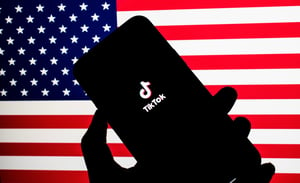
Google and Amazon are facing an intensifying campaign from university students and young professionals vowing not to work for the companies over their business dealings with Israel.
As reported by Walla News, the "No Tech for Apartheid" (NOTA) coalition has been urging a boycott of the tech giants, accusing them of "supporting the Israeli apartheid regime and the Palestinian genocide" through a major cloud computing contract with the Israeli government worth $1.2 billion.
The campaign, which aims to collect 1,200 signatures on a pledge to refuse job offers, says it has already garnered over 1,100 commitments from students and recent graduates in STEM (science, technology, engineering, and mathematics) fields.
"As young people and students in STEM and beyond, we refuse to take part in these horrific abuses," the pledge states, demanding Google and Amazon "immediately end 'Project Nimbus'" – the cloud services and data centers contract with Israel.
The "No Tech for Apartheid" movement has a history of staging disruptive protests against major technology companies over their Israeli ties, including office occupations at Google that led to the firing of dozens of employee activists.
While a Google spokesperson has previously denied the Nimbus project involves sensitive military or intelligence applications, the campaign represents a mounting challenge for the tech giants who heavily recruit from top universities like Stanford and UC Berkeley, where many of the pledges have originated.
Campus activists have embraced the Palestinian-led movement calling for boycotts, divestment and sanctions (BDS) against Israel over its treatment of Palestinians. By discouraging graduates from accepting jobs at Google and Amazon, organizers aim to leverage the clout of skilled labor to pressure the companies into dropping the Israeli cloud contract.
The sustained pressure signals the setbacks tech companies could face in the tight job market for coveted STEM talent if controversies over their operating practices or business relationships persist. It remains to be seen if the "No Tech for Apartheid" campaign's tactics will ultimately sway the corporate giants' strategies.





























0 Comments